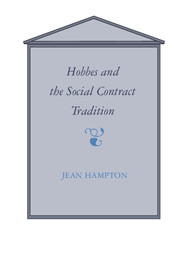Book contents
- Frontmatter
- Contents
- Acknowledgments
- A note on texts and references
- Introduction
- 1 “Of Man”: the foundation of Hobbes's political argument
- 2 What is the cause of conflict in the state of nature?
- 3 The shortsightedness account of conflict and the laws of nature
- 4 The argument for absolute sovereignty
- 5 Authorizing the sovereign
- 6 Hobbes's social contract
- 7 The failure of Hobbes's social contract argument
- 8 Can Hobbes's argument be salvaged?
- 9 How the traditional social contract argument works
- Bibliography
- Index
6 - Hobbes's social contract
Published online by Cambridge University Press: 05 June 2012
- Frontmatter
- Contents
- Acknowledgments
- A note on texts and references
- Introduction
- 1 “Of Man”: the foundation of Hobbes's political argument
- 2 What is the cause of conflict in the state of nature?
- 3 The shortsightedness account of conflict and the laws of nature
- 4 The argument for absolute sovereignty
- 5 Authorizing the sovereign
- 6 Hobbes's social contract
- 7 The failure of Hobbes's social contract argument
- 8 Can Hobbes's argument be salvaged?
- 9 How the traditional social contract argument works
- Bibliography
- Index
Summary
Two men, who pull the oars of a boat, do it by an agreement or convention, tho' they have never given promises to each other. Nor is the rule concerning the stability of possession the less deriv'd from human conventions.… On the contrary, this experience assures us still more, that the sense of interest has become common to all our fellows, and gives us a confidence of the future regularity of their conduct.
David Hume, A Treatise of Human NatureIn Chapter 3, I hinted that Hobbes might have a serious problem explaining the sovereign's institution. According to the shortsightedness account of conflict, Hobbesian people can keep virtually no contracts, but if this is so, how can they keep a “social contract” instituting the sovereign? More generally, if Hobbesian people cannot cooperate on much of anything in the state of nature, how can they cooperate on the sovereign's institution? Unless Hobbes has an effective answer to these questions, his argument collapses, because he will be unable to explain how people escape the state of nature and enter civil society.
In addition to dealing with this issue, I will have a more practical aim in this chapter. We know that instituting the sovereign is supposed to involve “surrendering the right to all things,” but this is merely metaphor. What concrete actions have to be performed in order to accomplish this surrender?
- Type
- Chapter
- Information
- Hobbes and the Social Contract Tradition , pp. 132 - 188Publisher: Cambridge University PressPrint publication year: 1987
- 2
- Cited by



